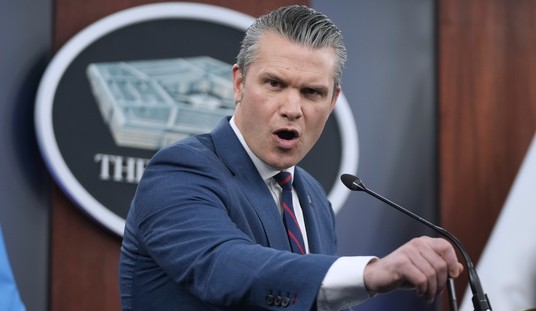We made our way through a long period where congressional Democrats and President Joe Biden kept insisting that they were going to push through the massive, $3.5 trillion “reconciliation” bill with or without the help of any Republicans. That sort of came to an end recently when Joe Biden admitted that they weren’t going to get the full $3.5 trillion and the final number would be “lower.” But simply saying that you’re finally willing to admit that half of a loaf might actually be better than none doesn’t mean that the job is finished. Now a new stage in the Democratic civil war seems to be shaping up.
Previously, we watched a fight unfold between Pramila Jayapal and her House Progressive Caucus against moderate Democrats over how or when they would pass the massive reconciliation bill. The moderates wanted to pass the infrastructure bill first and deal with the larger bill later, while Jayapal’s crew was insisting on doing them both at the same time. But now the debate has switched to the subject of how the total cost of the bill can be shrunk to something that Joe Manchin and Kyrsten Sinema can live with without losing the Progress Caucus again if the cuts are too steep. Joe Biden’s latest comments make it sound as if he would still like to keep all of the new programs in the current plan in place, but make them last for a shorter period of time with less funding. That’s the approach favored by most of the progressives currently. But Nancy Pelosi would like to focus on a smaller number of new programs, making them as permanent as possible, and put the other efforts back on the shelf. (Associated Press)
President Joe Biden says he would prefer to cut the duration of programs in his big social services and climate change package rather than eliminate some entirely, as Democrats struggle to win support from moderates by trimming what had been a $3.5 trillion proposal.
Biden’s comments on Friday, reassuring progressives on what he hopes will be a landmark piece of his legacy, marked his clearest indication yet on how he hopes negotiations over the bill will play out. Appearing to side with a strategy preferred by progressive lawmakers, it marked at least a subtle break with House Speaker Nancy Pelosi, who has suggested that most Democrats prefer to focus on establishing a few enduring programs.
He also said there is no deadline for a deal.
Biden has been getting some pushback on his vision already, including some comments this morning from Jonathan Chait.
I think this is a really bad approach, and it makes much more sense to pick a handful of programs and finance them permanently. https://t.co/KEEIgSREK1
— Jonathan Chait (@jonathanchait) October 16, 2021
The President appears to be sending some warning signals out here. One of the first to catch my eye was his addition of a statement saying that “there is no deadline” for a deal. This is a complete shift from the previous urgency we heard as Democrats scrambled to get all of the new taxes and spending plans put in place before everyone has to hit the campaign trail for the midterms. The longer these negotiations drag on, the closer we will be to the time when all of the House Democrats in marginal districts will have to face their voters and explain their actions. The House Democratic leadership is already looking over their shoulders nervously, wondering if Pelosi will be handing the gavel back after this cycle draws to a close.
Meanwhile, it’s still possible that this new battle will turn out to be just as intractable as the last one. There are plenty of Democrats who share the take that Chait expressed above. While I doubt any of the new programs can literally be made “permanent” if the GOP retakes the majority in both chambers, they could certainly be funded for a decade or so. By that point, some of them might become fixtures in the process and very difficult to remove. It’s not a crazy strategy for the Democrats to consider.
But Biden’s plan of keeping everything but slashing the length and the funding could backfire on them entirely. If they only fund the new programs through 2025, for example, and the Democrats manage to lose both the White House and the majority in either chamber, the GOP could simply allow them to expire without comment. Then, assuming the pendulum swings back the other way later on, they would be stuck starting all over again.
Either way, Joe Biden is clearly siding with Jayapal and the progressives yet again. But during the last debate, his influence was shown to be rather thin since he was unable to push either of the big spending bills over the finish line on his original schedule. This sort of pressure is likely to put both Manchin and Sinema even further back on their hind legs and leave them less inclined to wheel and deal.








